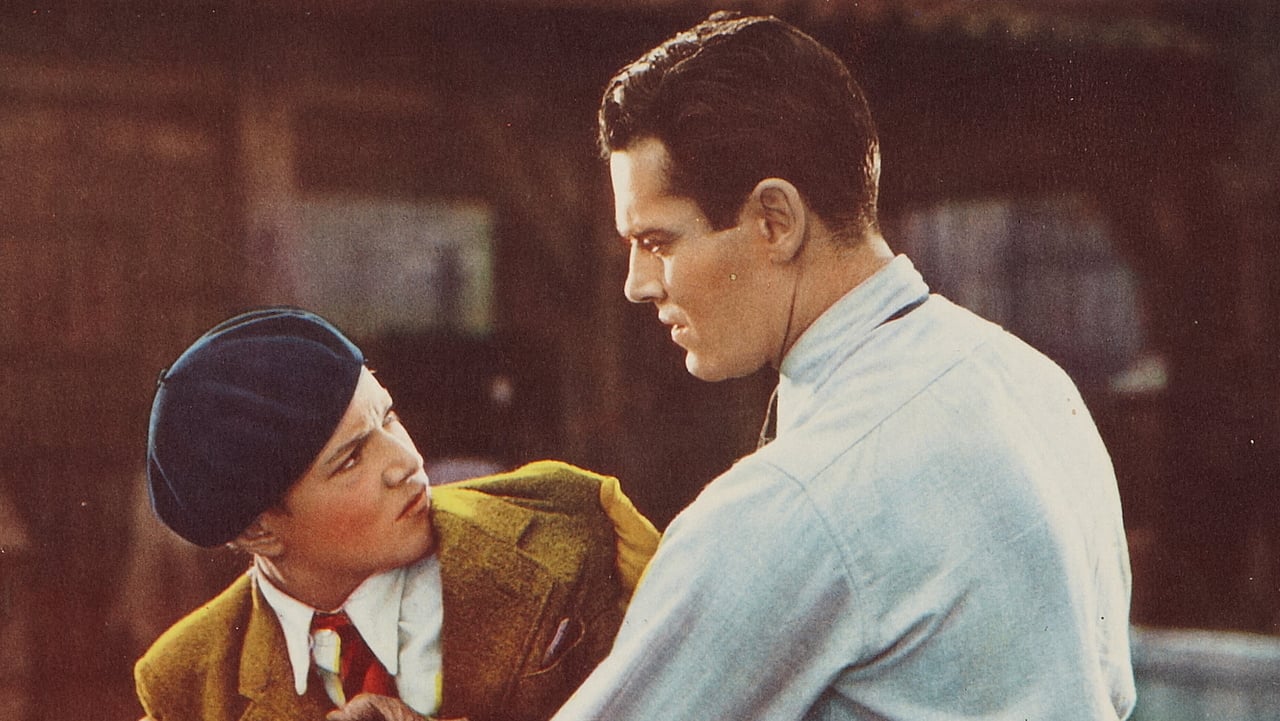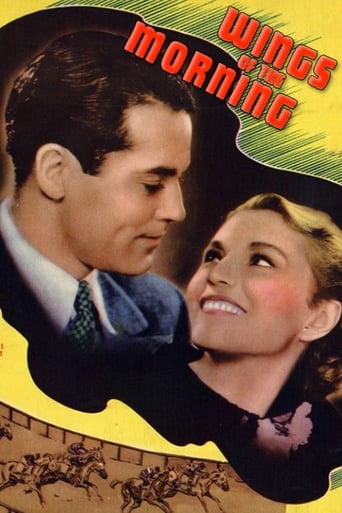ada
the leading man is my tpye
CrawlerChunky
In truth, there is barely enough story here to make a film.
Ogosmith
Each character in this movie — down to the smallest one — is an individual rather than a type, prone to spontaneous changes of mood and sometimes amusing outbursts of pettiness or ill humor.
Walter Sloane
Mostly, the movie is committed to the value of a good time.
blanche-2
"Wings of the Morning" (1937) has the distinction of being the first Technicolor film shot in the British isles, made when the great cinematographer Jack Cardiff was operating a camera. It also introduced the Irish tenor John McCormack to the public. Wings of the Morning might have been important for being French actress Annabella's first English-speaking film, but Annabella was two years away from becoming very famous for another reason which basically stopped her film career.Annabella has a dual role here, actually a triple role, in a film that takes place first in the 1800s and then in the present day. First, she is Marie, a gypsy, who is with other gypsies in Ireland in 1869. The Lord Clontarf (Lesley Banks) gives the gypsies rights to live on his land in perpetuity. He falls in love with Marie and the two marry, a union that is definitely controversial. When Lord Clontarf is killed in a fall while riding, Marie jumps on the gypsy caravan, and ever the roamers, they leave the area.Fifty years later, Annabella plays Maria, Duchess of Leyva, who is Marie's great-granddaughter and engaged to Don Diego (Teddy Underdown). The gypsies must flee Spain due to a revolution, so they return to the Clontarf land in Ireland. Marie (now played by Irene Vanbrugh) is worried that Maria will not get out of Spain, but she does, dressed as a boy. While so dressed, she meets horse trainer Kerry Gilfallen (Fonda), a Canadian. Eventually he discovers he's a she and falls for her. Maria has traded her great-grandmother's horse, Wings of the Morning to Kerry, not realizing the importance of the animal. Marie intends to enter it in a race in order to win money for Maria's dowry.Henry Fonda was such a handsome young man, and always a good actor, but he doesn't come off as Canadian with that drawl of his. Despite being new to English, Annabella does a very effective job in all of her roles - she was, after all, a huge star in France. Singer John McCormack had a beautiful Irish tenor, but what a bore - no career in movies for him.As far as the film itself, it's an interesting story but in the end, not a great film. The color isn't as sharp as we're used to today, but it doesn't diminish the incredible beauty of the Irish countryside.Annabella met actor Tyrone Power on the set of Suez in 1938 and the couple married in 1939. Their boss, Darryl F. Zanuck, did everything he could to break them up -- he offered Annabella some films that were to be made in Europe -- but she refused to leave Power. Once they married, the star buildup for Annabella stopped. She would star on Broadway, work for the war effort, do radio, and a production of "Liliom" with her husband, finally returning to France after they were divorced in 1948. From what she said in interviews -- je ne regrette rien.
GManfred
"Wings Of The Morning" is a good movie. Not a great movie, but a good one and there are several reasons to watch it. First and foremost, it is a rare opportunity to see and hear Ireland's most famous tenor, John McCormack. He sings several songs as the featured entertainer at a dinner party. He doesn't appear in the picture until about an hour into it, but his gorgeous tenor voice delivers "Killarney" and "All Those Endearing Young Charms" and it is worth the wait.This is also England's first Technicolor movie and it is pretty in its own right, but must seem primitive to film sophisticates. Especially eye-catching are shots of the Irish countryside as McCormack sings. Annabella makes her English-speaking debut in this picture and she is beautiful but her accent makes her difficult to understand at times.Well, that's about it. The story is ordinary, the plot points telegraphed and it moves at glacial speed. I would have rated it lower were it not for the reasons mentioned above.
Neil Doyle
It's surprising to read everyone talking about the wonderful early British use of Technicolor for this film, when in fact the color photography (as seen in the print shown on TCM tonight) can best be described as murky, even in the close-ups.Aside from the color, the script is a garbled hodge-podge of strangely related events, clumsily crafted and given stiff acting even by the lovely ANNABELLA. For a better view of this French actress, I suggest you watch one of her later U.S. films called 13 RUE MADELEINE, to fully appreciate her acting abilities.The disjointed story, combined with the lackluster direction and the lame dialog, only undercuts whatever merits are in the film's script. ANNABELLA does nothing here to indicate that she's on the brink of better things in her future and her line readings are less than professional as delivered in her French accent.Why Technicolor was wasted on this below average story is a mystery to me. Fans of Annabella and Henry Fonda are sure to be disappointed. Fox would have been more successful if they'd filmed this horse story here in the U.S. in sunny California for both the interior and exterior shots.Surprised that this unrestored print was the best TCM could do.
Hazel Freeman
The first British Technicolor film, it has a script that is somehow from another world; a sentimental world where gypsies travel in wooden horse-drawn caravans and dance round camp fires; and where gentlemen train horses and live only for victory at the racecourse.Maria, played by Annabelle, is dressed as a boy to escape the hostilities of the Spanish civil war, and becomes involved with Kerry (played by a young Henry Fonda). Kerry doesn't realise it's a girl, of course, until later when she reveals herself, when it's love at first sight.The climax of the film is at the Derby, the year's main race for the whole of Britain, and we get a glimpse there of the real world through the mist of the obscure direction (Harold D Schuster's first film).The Irish tenor John McCormack sings at a ball, and champion jockey Steve Donaghue appears as himself.

